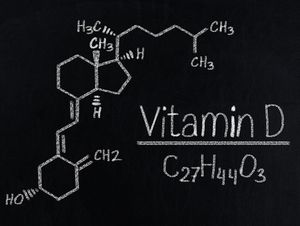I'm in my early 50s. My calcium has fluctuated between 10.1 and 10.5 over the past two years. My PTH was high normal until this past winter. Now it's above normal in the 90s. My vitamin D has stayed around 29. I am delaying surgery due to Covid and finances. My endocrinologist told me to take 2000 IU of vitamin D daily to lower my PTH. Does supplementing with vitamin D lower PTH and is it safe with hyperparathyroidism? I do know that when I've taken D I feel very tired the next day.


You should not take Vitamin D supplements if your calcium level is high. I’ll explain why below.
Primary hyperparathyroidism (pHPT) very often causes Vitamin D deficiency, and so it is common for patients to be told to take Vitamin D supplements. Unfortunately, if you have a parathyroid tumor, taking Vitamin D is not going to help, and may hurt. One of the main roles for Vitamin D in your body is to help your intestines absorb calcium. If you don’t have very low levels of Vitamin D, it is hard for your body to get enough calcium and you may end up with low blood calcium. When you have primary hyperparathyroidism, though, your problem is high calcium. If you take more Vitamin D when your calcium is already high, you can further raise your blood calcium level - which can make you feel worse.
Here is where it gets tricky, and where even doctors can get confused: There are situations in which taking Vitamin D can help lower your PTH level. This is true for patients with SECONDARY hyperparathyroidism, not primary hyperparathyroidism. In both primary and secondary, you have high PTH levels. You can tell them apart by the calcium level - if the calcium level is high (above 10.0 at your age) then it is primary. If the calcium is low (low 9s or lower in mg/dl), then it is secondary. In secondary HPT, the parathyroid glands respond to the low blood calcium by making more PTH. The parathyroid glands exist to keep the calcium in normal range, so when it goes too low, they make more PTH (parathyroid hormone). If you can’t get the calcium up for some reason, then the parathyroid glands just make more and more PTH. Low Vitamin D can be a cause of low calcium, since Vitamin D is necessary for calcium absorption in the intestines. So in cases of secondary hyperparathyroidism, one of the first treatments is to take calcium and Vitamin D supplements. If the blood calcium rises, the PTH level will drop - because again, this is all that the parathryoid glands do.
Here is another reason to not take Vitamin D: it is very likely that your ACTIVE Vitamin D levels are actually high. The form that we measure, called 25-OH Vitamin D, is the inactive form. This form gets converted into the active form in your kidneys. We don’t measure the active form as much, since in general the inactive form is a pretty good measure of your Vitamin D status. The exception is in patients with primary hyperparathyroidism. With primary HPT, PTH stimulates the activation of Vitamin D, so you end up with low inactive levels and HIGH active levels. Many patients with primary HPT are told that they have “Vitamin D deficiency” but this is because the doctor is only checking the inactive form. If you check the active form, it is high in most patients.
Taking Vitamin D will not help your disease. And it may raise your calcium further, which could make you feel worse. The only cure for primary HPT is an operation. For my patients, I recommend not taking calcium or Vitamin D prior to surgery. All patients will need to take calcium and Vitamin D after surgery, but prior to surgery it will not help.



